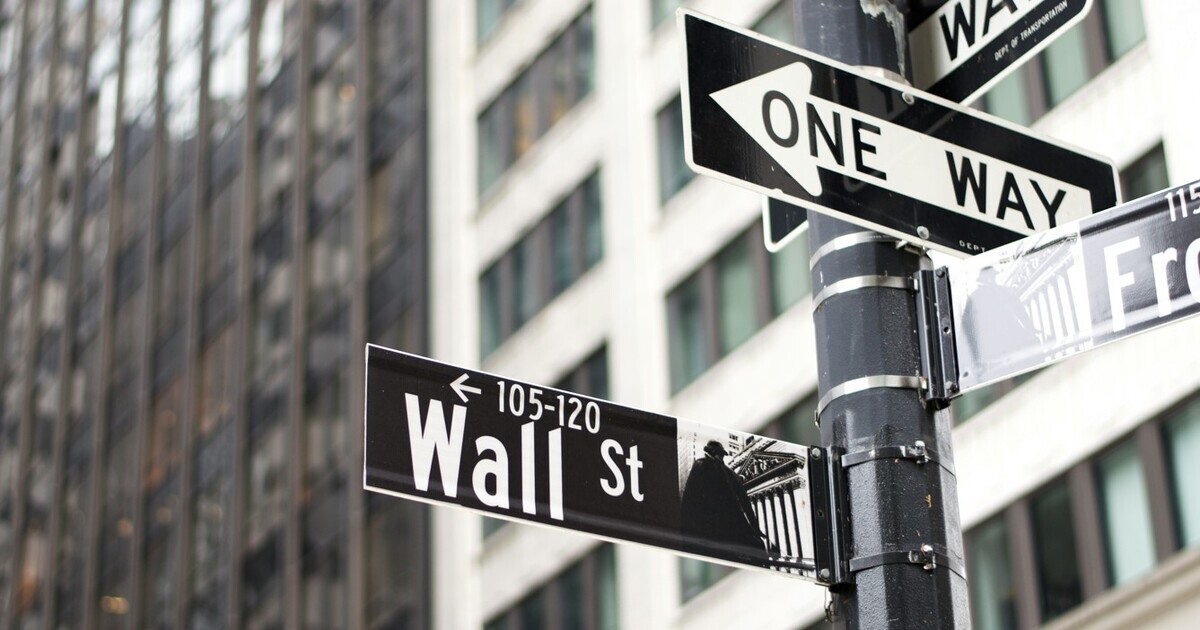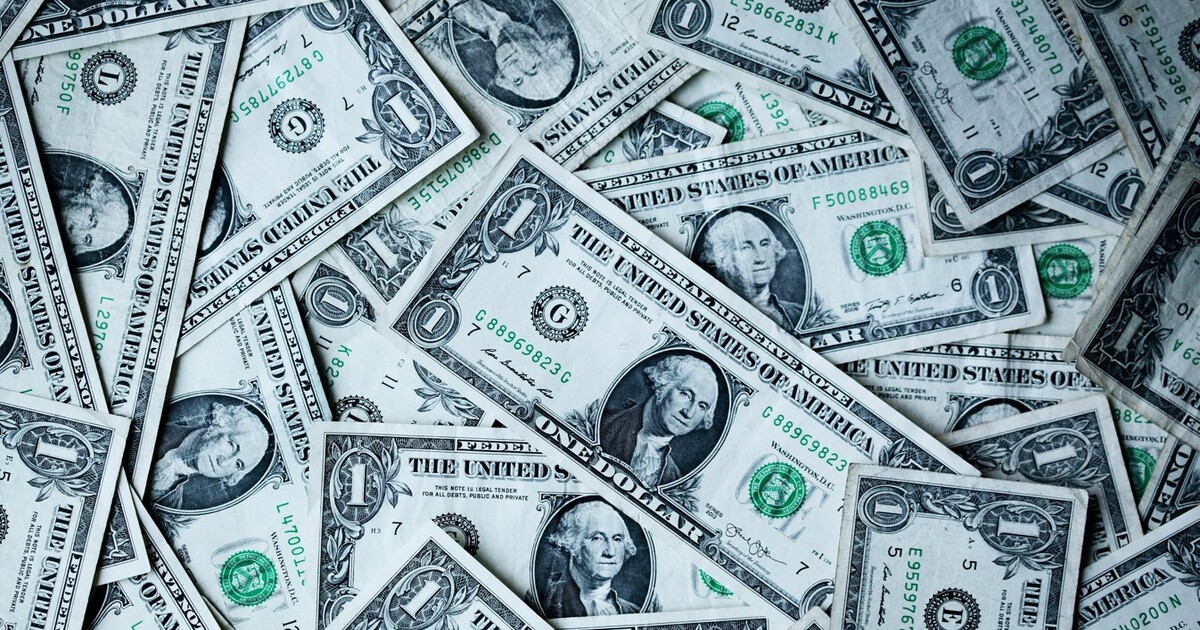Trump is Cornering the United States, Not the World
No matter what Trump and the MAGA crowd want to believe, no nation on earth can ignore the irrevocable accounting principles of the balance of payments.
April 11, 2025

We can endlessly debate whether economics is really a science. We can forever discuss and argue over our ideological preferences as policy measures are concerned that are intended to steer our economy on the “right” path.
However, there is one thing that is not up for debate: The irrevocable accounting principles that are the basis for the aggregation of the so-called balance-of-payments (BoP) for each nation and for the world as a whole. Not debatable. Period.
Trump often decried the U.S. trade deficit. Yet it is one piece of balance-of-payments accounting. His ignorance or disregard for understanding the underlying principles of the bigger economic and immutable (!) equation led to both his imposition of egregious tariffs on the rest of the world as well as his temporary capitulation and pause on some of these tariffs.
What is the BoP?
In very broad terms, the BoP is the balance of all transactions between countries, aggregated on a country-by-country basis. In a simplified version, the BoP has several components, including the current account which includes the trade balance that is so often at the center of public discussion.
As an equation the overall balance of every country must look like this: Current Account Position + Capital Account Position + Changes in Reserves = 0. All countries that have a combined surplus in their current and capital accounts will add to their reserves (counterintuitively expressed as a minus).
All countries that have a combined deficit in their current and capital accounts will need to draw on their reserves (counterintuitively expressed as a plus). Hence, the overall balance on the BoP will always be zero.
As always there are exceptions. If a country has persistent combined deficits on its current and capital accounts and has used up all its reserves, it is in laymen’s terms insolvent and must try to borrow from the International Monetary Fund, for example.
The second exception is most important: It is the United States! The U.S. dollar is the only reserve currency in the world. As a result, and by definition, the United States has virtually no reserves. Its currency is its reserve.
Why does that matter?
Well, the United States runs – in part due to its very advanced stage of economic development – a chronic current account deficit (which includes the so sillily bemoaned trade deficit). But all of its current account deficit is made up for by an equal capital account surplus.
U.S capital markets are the deepest in the world. The dollar is the reserve currency of the world. Hence, other countries buy massive amounts of shares in the U.S. stock market as well as in so-called fixed income instruments, corporate bonds and, most importantly, U.S. treasury bonds, bills and notes!
This and an inflow of foreign direct investment into the United States (minus all capital outflows) makes for a huge capital surplus that puts the United States BoP into balance.
In other and somewhat simplified words, the United States never really adds to its reserves, nor does it need to draw on such reserves. As pointed out above, there is, therefore, no need for such reserves.
The real reason for the Trump (temporary?) turnaround
As the tariff war has ratcheted up, especially with China imposing drastic retaliatory tariffs and some measures from Canada and the EU, the real wise recognize where America’s Achilles heel is. The capital account.
As such, French President Macron, in his usual charming way, has appealed to French enterprises and investors to hold back with investments in the United States.
China, more dependent on trade than the French has promised to “fight until the end.” So, they have entered a tariff war that ultimately makes any trade with the United States non-existent.
They know it and that war is for domestic political consumption. As well as for international consumption in China’s effort to “bully the bully.”
Behind the scenes, their approach is to hit the United Statess where it hurts. 24% of U.S. Treasury debt of over $36 trillion is held abroad. While China officially holds $760 billion, its indirect holdings may bring the total to the range of $1.5 trillion.
So, turning off the spigot that allows U.S. consumers and the public sector to spend more than they save would have disastrous consequences.
And this is why yields on U.S. treasuries went through the roof over the last days before Trump’s tariff pause. These market interest rates for treasuries rose in a remarkable fashion. They rose so dramatically that a collapse of the U.S. treasury market was certainly within the realm of possibilities.
Even a reserve currency can fail
Whether or not the Chinese sold off U.S. treasuries, markets anticipated that as a risk and rates rose. You see, the lack of capital inflows into the United States, which foreigners indeed control, puts the United States in a bind.
If its capital account surplus dwindles, by definition the U.S. current account deficit must contract.
And this is where the currency reserve status can lead to sudden death. The United States has no reserves as all other countries do. It must import excess capital. If it cannot do so, it has to depress the economy or it has to print such massive amounts of U.S. dollars that hyperinflation, not inflation will be the result.
No cause for celebration abroad
While the current U.S. chaos is self-inflicted by the largely uneducated view of one single man – Donald Trump, this has global consequences.
Cutting the United States off from capital inflows, as countries may choose to do by failing to buy U.S. treasuries, is the ultimate economic nuclear weapon that major economies in the world wield. There is no mutual deterrence from the United States as it simply cannot retaliate on that front.
Nevertheless, using this nuclear weapon will lead to mutually assured destruction of the world economy. U.S. bond markets have just reminded the U.S. government of that and caused Trump to utter another phrase that will go into the history books: “People went yippy.”
The term yippy is really not commonly used in the English language or found in dictionaries. It is most likely derived from the word “yips” which appears to describe the sudden inability of a golfer to hit the ball in a bout of nervousness. U.S. bond markets ran (reasonably) scared and Donald Trump could not putt his golf ball.
It might be too late
While Trump paused the most punitive and irrational tariffs (except for those on China), the new across-the-board 10% tariffs as well as the 25% tariffs on automobiles, steel and aluminum remain in place painting a dark picture for the U.S. and world economies.
The harm to being a reliable player in international trade and finance and the growing fear in the United States and abroad that all contractual arrangements, including those affecting the free flow of capital, may become arbitrary, heightens uncertainty. At a minimum, it has deeply undermined the confidence in the rule of law governing among other things U.S. capital markets.
That in and by itself may force the world to reorganize amidst economic and political chaos with unpredictable outcomes except for one: International accounting principles for the world’s balance-of-payments remain the same. They will report the real results, whether we like them or not.
Takeaways
U.S. treasury markets went yippy and Trump tried to jump back from the cliff. But the harm is done, no returning to the past.
Cutting net capital flows to the U.S. is the nuclear option causing mutually assured destruction.
No matter what Trump and the MAGA crowd want to believe, no nation on earth can ignore the irrevocable accounting principles of the balance of payments.
The real Achilles Heel of the United States is not its trade accounts, but its capital account.
There is one thing that is not up for debate: The irrevocable accounting principles that are the basis for the aggregation of the so-called balance-of-payments (BoP) for each nation and for the world as a whole.
The U.S. dollar is the only reserve currency in the world. As a result, and by definition, the United States has virtually no reserves. Its currency is its reserve.
French President Macron has appealed to French enterprises and investors to hold back with investments in the United States.
The lack of capital inflows into the United States, which foreigners indeed control, puts the United States in a bind.

